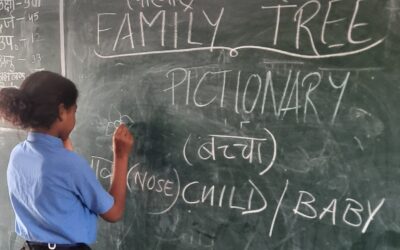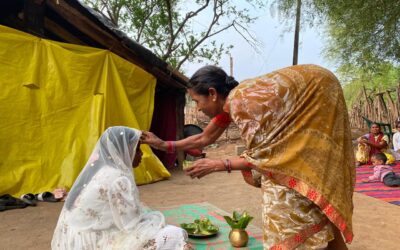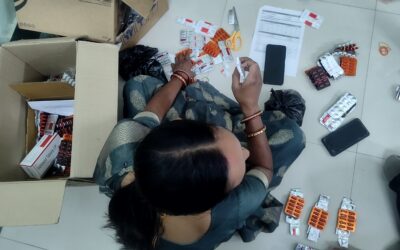Things that seem acceptable in urban educated society may not be the same everywhere. Until now, in my microscopic view of societal interactions, I have been living under an impression that the “normal’ remains same across regions. Access to the best possible facilities never made me realize that my normal could be someone else’s taboo, and vice versa. In the last few months, I have been exposed to stark realities of social customs and centuries old practices which I don’t personally endorse. My urban educated mind also doesn’t want them to continue.
As a part of the fellowship, I am working in Salumber, a small town of Udaipur, which is endowed with natural resources and the historical figure of Hada rani. It is majorly populated by tribal people, and the economy is driven by agriculture, mining and allied activities. Migration of male members in the household to nearby cities like Ahmadabad, Surat, Mumbai and Udaipur is common. The main source of employment comes in the form of unskilled and semi-skilled labor employed in hazardous jobs.
Some of the major occupations are that of labor in marble mining sites, marble polishing, marble fitting, and construction sites, all of which have no safety gear for workers. Neither do they follow labor laws. Workers in such cases, are in constant exposure of particulate matter for no less than ten hours a day, which further translates into lung disease and loss of employment. One can always find replacement for those who have to leave. The most remarkable part is that media houses have no time to report these ongoing practices as their airtime is occupied with PPM levels of Delhi.
If the labor practices were not bad enough, social inhibitions and cultural practices make it worse by amplifying the situation. A disease which can be easily cured if diagnosed on time and given proper medication becomes life threatening just because sacrificing an animal in temple is considered more reasonable than seeking a doctor’s advice.
Getting infected from Tuberculosis is such a taboo for people that they do not seek professional advice but rather approach local quacks who treat them with strong dose of medicine resulting in an instant relief and readiness to work again. This only makes things worse. Out of inhibition and shame, people do not go to PHCs (Primary health centers) or nearby health centers for treatment but rather travel miles away where their identity is unknown.
Thawar chand left school early, got married and joined the labor force in Salumber, just like many others in his village. He then started working as a marble fitting worker along with his father in Udaipur and visited home frequently for fulfilling other household duties. In July 2017, he fell sick so badly that he was bed-ridden, not in position to perform any activity demanding physical strength. Due to his medical condition, his father too had to leave his work and stay at home. For four months, he did not take any medical help but went to local deities and performed rituals in the name of treatment.
In spite of having performed all kinds of rituals and even after spending every penny in the house, there were no signs of improvement in his health. Finally, Thawar Chand decided to seek medical help and for that, he went to get a loan from money lenders, who then connected him with the outreach officer of AMRIT clinics, who provide treatment to marginalized communities in the region. There, he was diagnosed with Tuberculosis. Since he and his father were not working at that time, their financial condition was not good enough to afford a proper diet which would help him recover from this disease. Shram Sarathi, in collaboration with AMRIT clinics, gave him a financial support of Rs 3000 per month for six months, so that he could meet his dietary and household expenses. Today Thawar chand is alive, healthy and fit to join the workforce again.
His story is not just tragic but an example of beliefs that are still prevalent and practiced strongly by the community. He survived the apathy of social norms and blood sucking private sector medical treatment but not everyone falls in this category. There are many who still choose the other way and lose their lives without even getting noticed. They just remain a number in the data records of mortality rate.




0 Comments